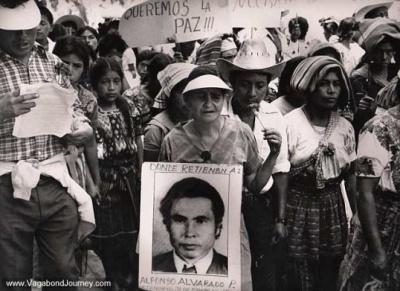Guatemala
1968 - 1996
The Guatemalan Civil War was mostly fought between the government of Guatemala and various rebel groups supported by Maya indigenous people and poor peasants. The armed forces of Guatemala have been condemned for committing genocide against the Maya people during the civil war. Children were thrown alive into ‘death pits’, rape, mutilation, womb extraction without anesthetic, corps, livestock and the water supply was defiled, cut down and polluted. The collective shame of this period due to the extensive acts of sexual genocide still permeates the memory. An estimated 200,000 people were killed or went missing during the war. Under the de León peace process, brokered by the United Nations and the Guatemalan government, human rights agreements were signed and the resettlement of displaced persons was given legal clarification. Under president Arzú, peace negotiations were concluded, and the guerrilla umbrella organization Unidad Revolucionaria Nacional Guatemalteca (URNG) both became a legal party and signed peace accords ending the 36-year internal conflict in December 1996. The United Nations Security Council adopted Resolution 1094 on 20 January 1997 which deployed military observers to Guatemala to monitor the implementation of the peace agreements.
